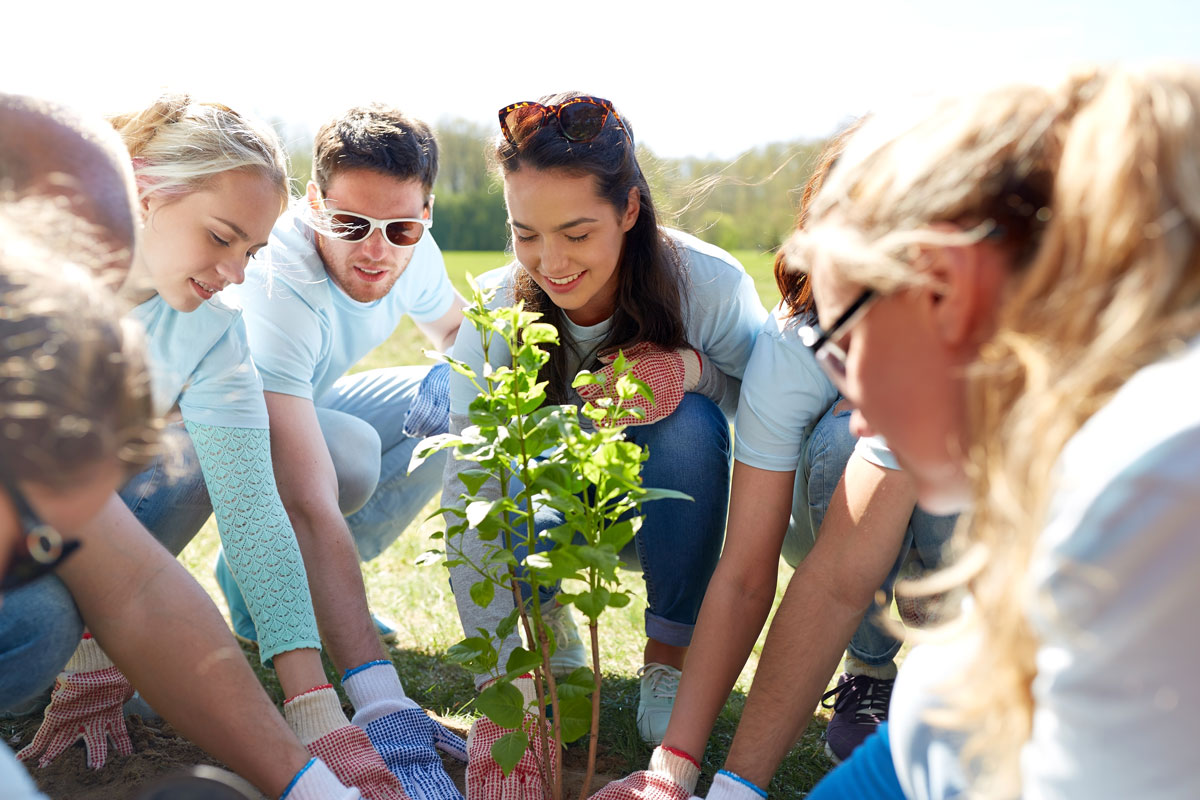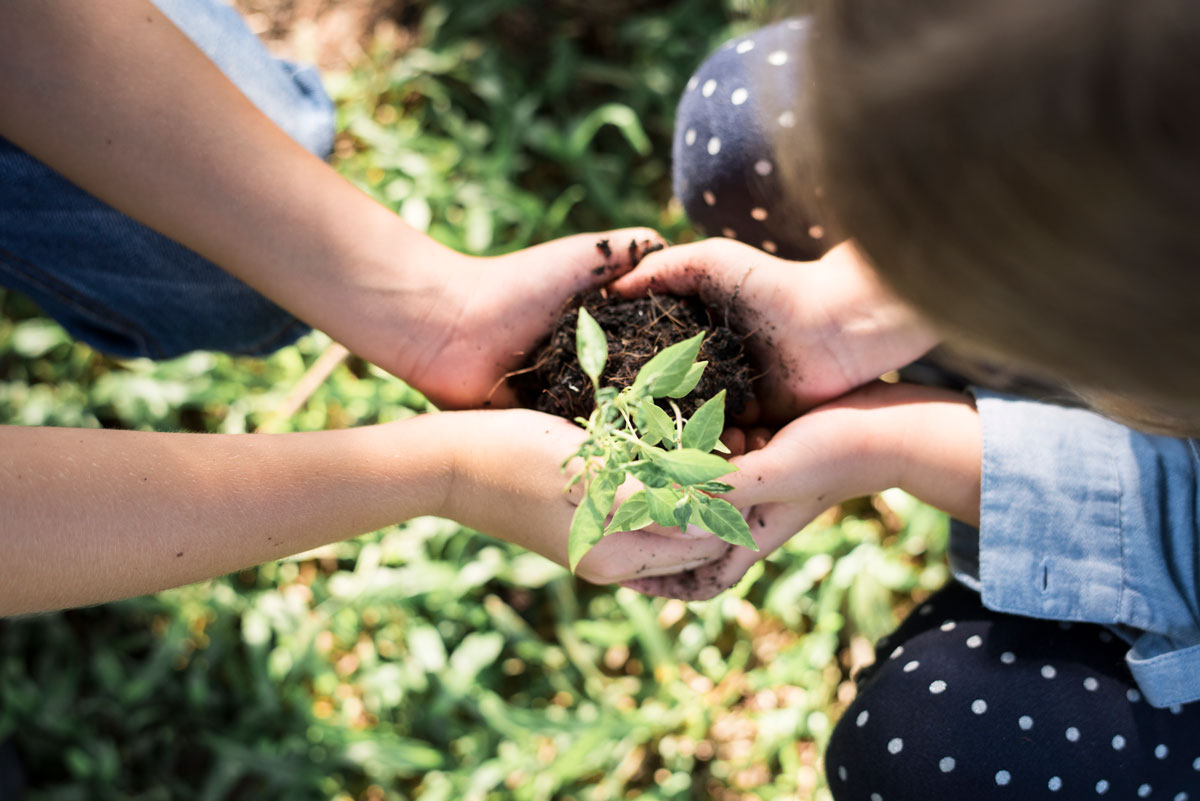Mindful Adults, Mindful Kids:
Planting Seeds in the Garden of Well-Being
Just one breath with awareness can transform any moment.
Giving kids and teens the gift of mindfulness is like planting seeds in a garden. Pause, breathe, notice, return – these are quiet actions that cultivate conditions for growth and well-being.
Mindfulness starts with us and our own practices. Whatever our role in kids’ lives – parents, grandparents, aunts, uncles, teachers, healthcare professionals – mindfulness creates space for well-being and compassion, and is a model for young people.
Mindfulness is a robust topic of scientific inquiry. Strong evidence links mindfulness with positive emotion, enhanced life satisfaction, compassion, and overall wellbeing. Mindfulness practice can help reduce risk for illness and stimulate physical and emotional health (Goleman and Davidson, 2017; Willard, 2016).
Psychologist Lea Waters offers several benefits of mindful parenting (2017). Gains can include improved parenting in the moment; modeling effective ways to deal with relational conflicts and stressful situations; and mindful parents coaching their kids to become more mindful.

5 Ideas to Plant the Seeds of Mindfulness
If we think mindfulness is a good idea, it’s helpful to understand that cultivating the practice begins with us. When we engage in mindfulness, we offer a model for young folks that can help them become motivated to try it.
1. S.T.O.P. – This easy acronym is a reminder to plant daily mindful moments (Goldstein, 2013).
- Stop
- Take a Breath
- Observe (notice feelings, thoughts, sensations – non-judgmentally)
- Proceed
STOP can be practiced within ordinary activities. For example: morning awakening; while tooth-brushing; walking to the kitchen for breakfast; during a break at work or recess; before a meal; in bed at night.
2. Find a Quiet Place
Our world is busy and we can forget to pause. Find a quiet space for brief moments to sit with a child to read a book, share a conversation, express love and gratitude, or say a prayer.
3. Mindful Eating
Adding a moment of mindful attention to eating can transform the experience. Pause to notice what you’re eating. Pause to approach the food as a new experience. Pause to express gratitude before eating.
You can choose to do most anything mindfully. Stop. Take a Breath. Observe – pay attention to the experience of that moment. Proceed.
For example: As a family, pause momentarily when sitting down for dinner. “Let’s wait a moment and just take a breath. Let’s each share one thing we are thankful for today – even a word will do. OK, let’s eat this great food!”
4. The 3 R’s offer a simple process and language for mindfulness when your mind wanders (Willard, 2018).
- REST your awareness – Use an “anchor” to help you continue to pay attention. Examples of anchors include: the breath (“I am breathing in, I am breathing out”); a word; sounds you’re listening to, such as quiet music, ocean waves, the traffic.
- RECOGNIZE when (and where) your mind and thoughts wander.
- RETURN to your anchor when you notice yourself wandering. Repeat this process as many times as needed.
5. Plant Seeds to Nurture the Garden of Well-Being – Consider these self-inquiries:
- How can you incorporate a few moments of mindfulness in your day?
- If you already practice mindfulness, how can you add a bit more?
- How can you share moments of mindfulness with kids in your life?
“There are two mistakes one can make along the road to truth… not going all the way, and not starting.”
– The Buddha
Learn More with these Mindfulness Resources:
- Goldstein, E. (2013). Stressing out? S.T.O.P.
- Goleman D. & Davidson, R.J. (2017). Altered Traits: Science reveals how meditation changes your mind, brain, and body. New York, NY: Avery.
- Kabat-Zinn ( 2012). Mindfulness for beginners: reclaiming the present moment – and your life. Sounds True. CO.
- Niemiec, R.M. (2014). Mindfulness & character strengths: A practical guide to flourishing. Boston, MA: Hogrefe.
- Waters, L. (2017). How the new science of strength-based parenting can help your child and your teen to flourish. Penguin Random House, New York, NY.
- Willard, C. (2016). Growing up mindful. Essential practices to help children, teens, and families find balance, calm, and resilience. Boulder, CO: Sounds True.
Coaching with Ilene Can Help You Call Yourself to Action
Ilene Berns-Zare, PsyD, PCC, CMC is an ICF Credentialed Professional Coach and Speaker. Ilene helps people live their best lives by bringing mind, body, and spirit into flow with their strengths, callings and potential. She inspires clients to find fresh perspectives and access their full potential as creative, resourceful, whole persons. Find Ilene online and access free resources at http://ileneberns-zare.com.
Discovery Coaching Consultation
During this FREE telephone consultation, we become acquainted, explain what coaching is, and mutually establish if we would be a good fit as a coaching team. We discuss your objectives, your current life circumstances, and obstacles you’ve been facing as you strive to reach your most important life goals. Click here to contact Ilene.
In light and empowerment,
Ilene
Please share this blog with anyone who might be interested in reading it!
We would love to hear from you! We are interested in your suggestions for this newsletter, your reactions to this one, or providing more information about coaching.


